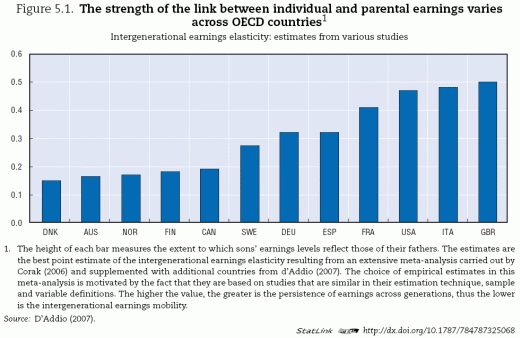That's great for them. Roughly 80% of college graduates aren't as fortunate as that, to have such an opportunity to gain a college degree in a field suited to their skills and walk away debt free. Costs beyond what money students can put towards school themselves has increased 25% over the last seven years, to an average of almost $30K in debt. The increase in college debt is attributable mostly to a reduction in grants, and an increase in costs far beyond the increase in wages a student can earn for jobs they can get while furthering their education. Such debt is a new encumbrance on the ability for young people to break out of the cycle of poverty they were born into, assuming that they're even "lucky" enough to have the opportunity to incur such debt, i.e., gain such an opportunity to enter a worthy career path.Several younger colleagues with a couple of kids ...their plan
1) community college for 2 years - live at home
2) local state university junior and senior years - live at home
3) reliable older car think Toyota / part time work.
All in cost $25k -
Debt at graduation...$0
Another interesting trend is internships. When I was in college, a few schools required practical internships for graduation. As a result, the internships I considered all paid decently. Required, unpaid practical internships are apparently much more common now. Internships represent yet another new financial barrier to entry for many careers. It is outrageous that the law allows unpaid internships and internships that pay less than any reasonable conception of the cost of living. My niece applied for three internships (the limit imposed by her certifying agency). She's already received an offer from one, which is luckily located here in the Atlanta area. While she'll have to pay for her own transportation (all over the county, which is 70 miles long from north to south) to her job assignments, she'll at least be able to live rent free with her aunt and uncle, who will be happy to feed her. She'll make some money this summer, before the seven month internship begins, but it will barely be enough to cover incidentals for that period of time. She'll have to borrow money to pay for that which, if she were an actual employee, her employer would be obligated to pay.
Last edited:

